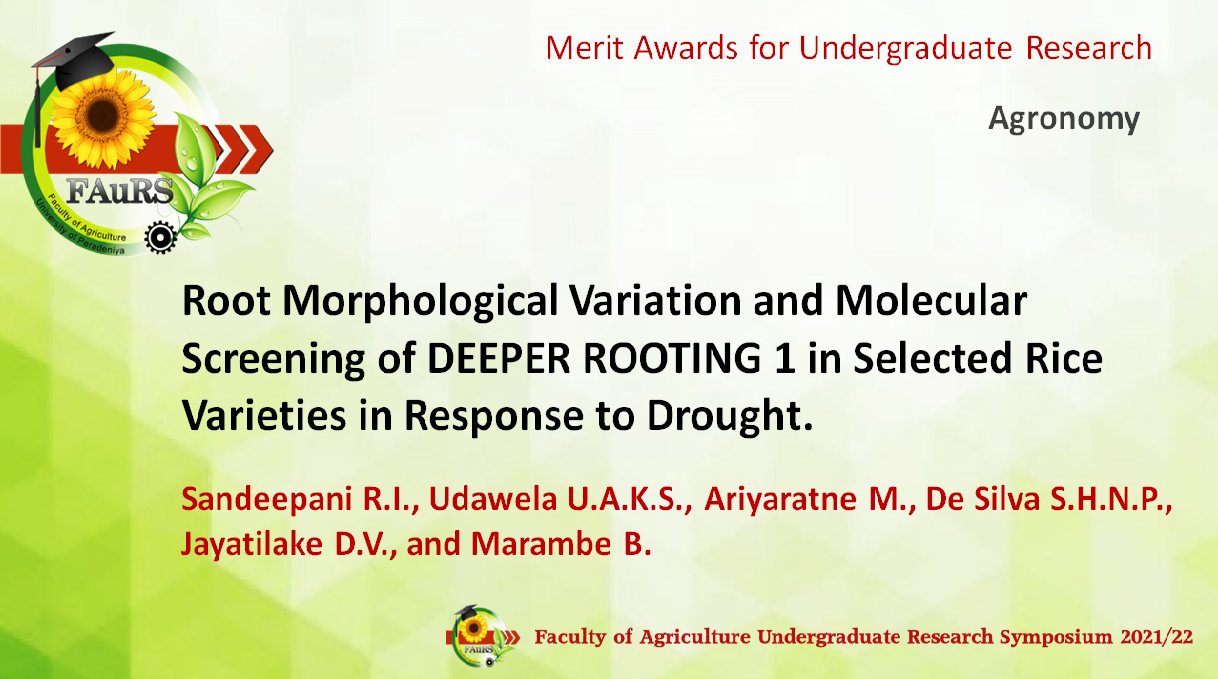
R.I. Sandeepani
Root Morphological Variation and Molecular Screening of DEEPER ROOTING 1 in Selected Rice Varieties in Response to Drought
Duration
Funding Agency
Final Year Research Porject
Leader
Investigators
Sandeepani R.I., Udawela U.A.K.S., Ariyaratne M., De Silva S.H.N.P., Jayatilake D.V. and Marambe B.
Abstract
Drought is a major abiotic stress that affects all stages of plant growth and development
of paddy resulting in large yield reductions, especially in rainfed cultivation. Around 35%
of farmers give up cultivation in the Yala season especially due to water scarcity.
Developing drought-tolerant rice varieties has thus, become essential. DEEPER
ROOTING 1 (DRO 1) is a Quantitative Trait Loci (QTLs) responsible for deep rooting
that helps paddy plant to tolerate drought stress. This research was conducted to study
the root morphology in several selected paddy varieties under drought and to develop a
molecular marker for screening of DRO 1 gene in paddy varieties. Seven varieties (local
and exotic) selected from previous studies were used in both pot and field experiments.
Drought stress was imposed on paddy plants in the pot experiment from 21 days after
planting (DAP). Roots with a root angle from 0 to 45° were considered as shallow roots
and those with 45-90° as deep roots. For molecular screening, a DNA primer was
designed using 1bp deletion of the reference gene of IR64. The designed primer and leaf
DNA were used for PCR analysis and the products were separated using 2% Agarose gel.
Morphological screening revealed that the percentage of deep roots in Bg 300 and BRRI
Dhan 71 were higher (p<0.05) than the other varieties. Deep and shallow rooting was
similar (p>0.05) in IRDTN 7-56 and AR 9-3. Dry weight of deep roots were higher than
the shallow roots (p<0.05) in Bg 314 (drought-tolerant variety) and Bg 352. Further, the
dry weight of deep roots in those two varieties were higher (p<0.05) than the other
varieties. The newly designed primer was able to provide the desired PCR product, and
it is recommended to be used in DNA sequencing to confirm the presence of DRO 1.





